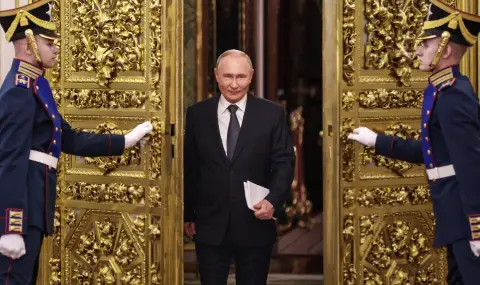The pro-European forces in Moldova hardly won the referendum on the country's European integration, and then the presidential elections. In Georgia, the opposite happened – The pro-European opposition failed to win the parliamentary elections and is holding protest actions.
The two countries are united not only by their common Soviet past and the fact that Russia occupied parts of their territories, but also by the Kremlin's open interference in their internal affairs and the active influence exercised over both politicians and all voters.
The Kremlin uses not "soft power", but direct pressure
Russian agents of influence in neighboring countries are actively acting - fishing in murky water, which they themselves have muddied in advance. Of course, this is not about Ukraine. The Kremlin is not able to subdue it even with military force, and there are less than two weeks left until a sad anniversary – 1000 days since the beginning of the military aggression in Ukraine, which led to the deaths of hundreds of thousands of people.
Russia's attack on Moldova and Georgia is not direct. But in their case, we can speak of ongoing aggression. It began at the moment when the so-called "Russian peacekeepers" occupied 20% of the territory of Georgia (the self-proclaimed South Ossetia and Abkhazia) and Moldovan Transnistria. It does not matter whether the Kremlin has recognized their so-called "independence" - the result is the same. With its claws, the two-headed Russian eagle has clung to the former "brotherly countries" and is trying to prevent their European integration. It does not have the resources for new wars, while the full-scale aggression against Ukraine continues. Therefore, the Kremlin is trying to solve the problem with the help of the so-called “soft power“.
So-called because “soft power“ has long been out of the question. In Georgia, a landing party of Russian political technologists took place for the elections, there are rumors of direct consultations through the Russian special services, and in Moldova, a whole network was created to buy tens of thousands of voters with the money of the pro-Russian businessman and politician Ilan Shor, convicted in Moldova for bank fraud.
In other words, there can be no question of any “soft power“ - this is direct pressure, accompanied - which is not unimportant - by the threat of using military force. After all, there is a Russian military presence on the territories of these countries. Separatist slogans are being raised directly in Moldovan Gagauzia, and its leadership visits Moscow - as they say “for instructions“. The ruling Georgian Dream party, on the eve of the vote, was scaring voters with war, putting up posters across the country with images of destroyed Ukrainian cities and "blooming" Georgian ones.
The Kremlin's goal is to impose its way of thinking
It is worth remembering here that the Kremlin is interfering not only in the domestic politics of Georgia or Moldova, where it intends to take revenge during the parliamentary elections in 2025 - simply because there are more opportunities in these two countries. But it is also trying to interfere in the elections in many EU countries - the Russian authorities are sparing no resources for this.
Democratic countries also have to make strategic decisions - not only about strengthening their armies in the event of direct aggression, as happened in Ukraine. They need a strategy to protect their political spaces. Because real victory – today, it is no longer about capturing the enemy, but about imposing your way of thinking on them. In the case of the Kremlin, this means establishing an authoritarian regime in another country, just as unfree as in Russia, but weaker and subject to Russian influence.
The referendum and presidential elections in Moldova showed that the Kremlin is ready for crimes. Therefore, it is not enough to fight against it only through democratic education and exposing fake news.
The power of the Kremlin must be opposed by the power of law
The forceful resistance against the Kremlin must be complex. For example, if it is clear that Russia helped the Georgian authorities to influence the election results with illegal methods, and there is no hope for the Georgian legal system – External measures of influence will have to be applied: sanctions, direct support for democratic public movements and, if necessary, for the opposition, which is being repressed.
In the case of Moldova, this could be the exchange of intelligence information, the inclusion of legal instruments to combat corruption: arrests, punishments and public trials, so that the population can see who and how is really heating up the situation in Moldovan society.
Unfortunately, further strengthening of protective measures is inevitable in the old European democracies as well. The power of the Kremlin can only be opposed by the power of law. Otherwise, free media will be replaced by those that spew fake news, and democracies - by electoral autocracies. Then the Putin regime will be able to win without weapons, negotiating with leaders who are just as corrupt - as is already happening in Hungary or Slovakia.
Author: Ivan Preobrazhensky
